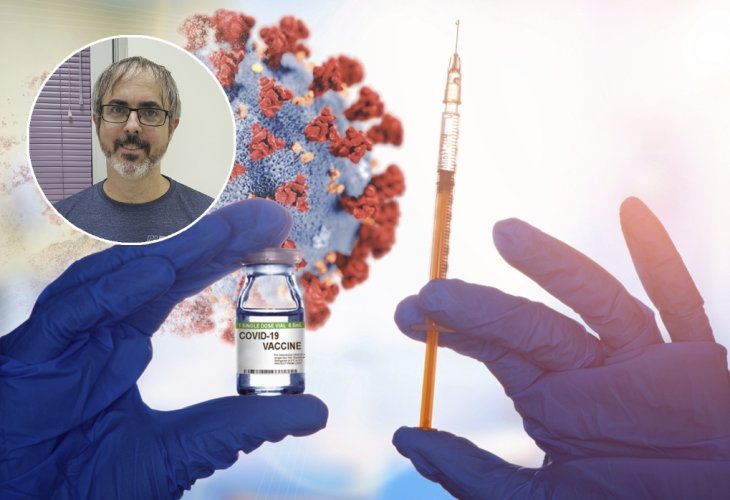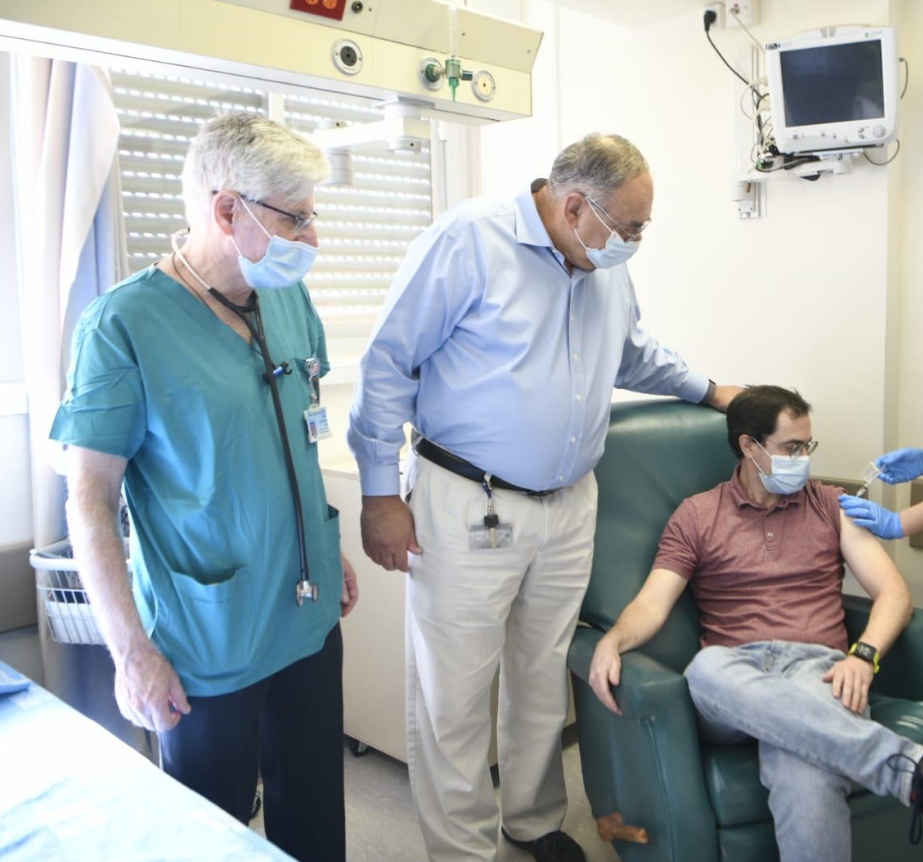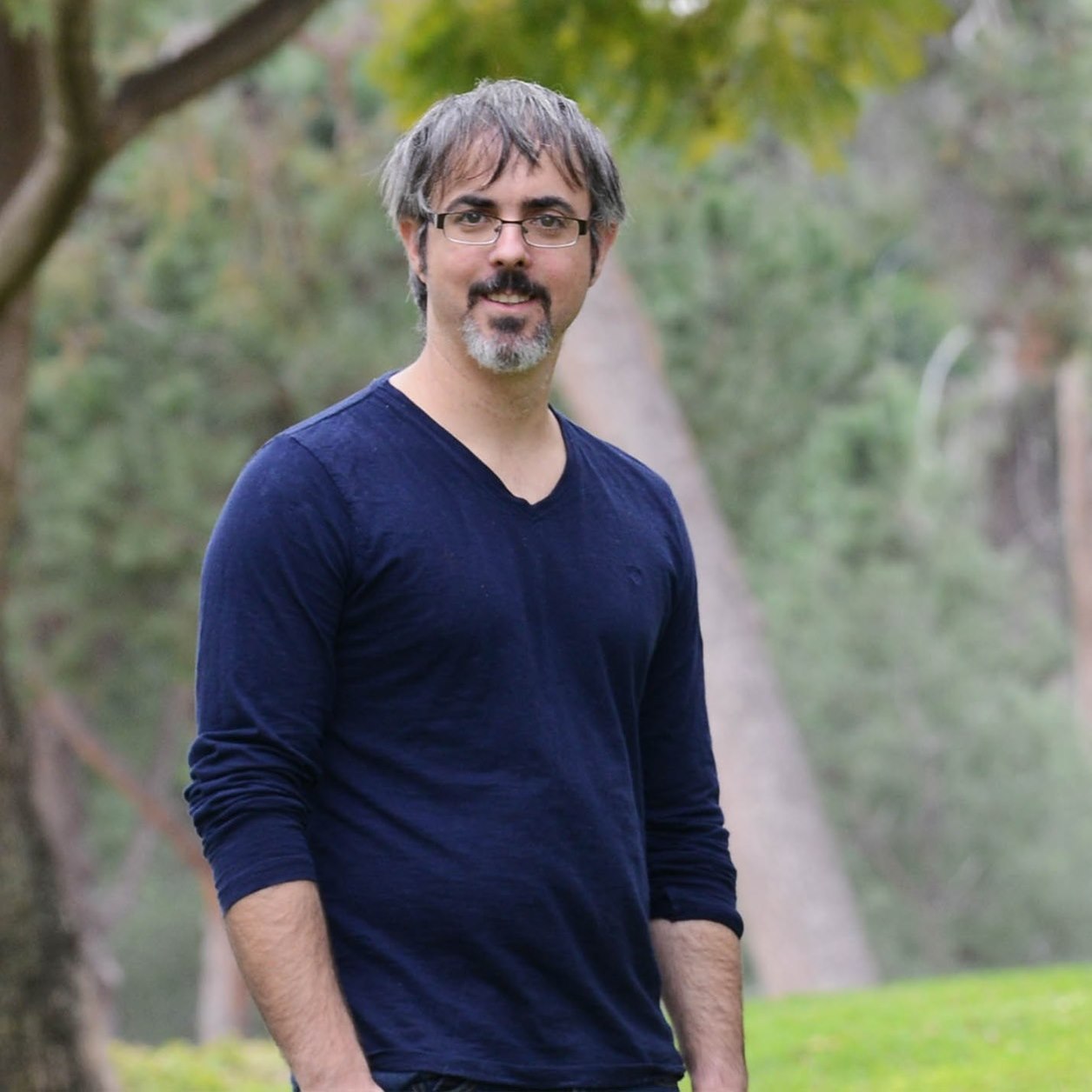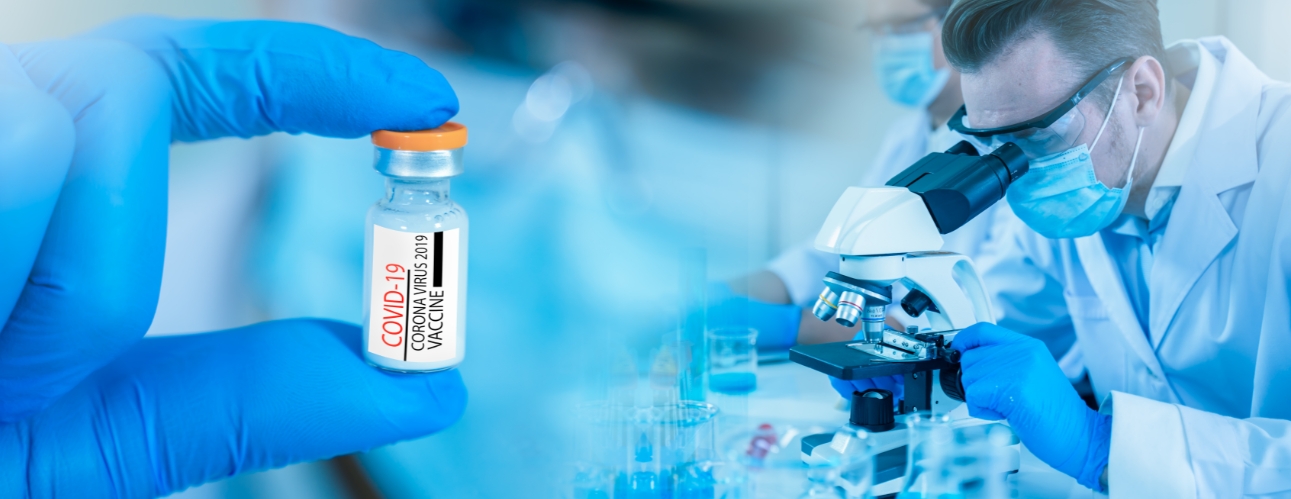"The Vaccine is Here, But You May Not Receive It": Dr. Erez Garty's Fascinating Explanation
Human trials for the Israeli vaccine started this week. What risks do the volunteers face? How will the vaccine be administered? And why might it not be available by next winter? Dr. Erez Garty from the Davidson Institute addresses all these questions.
 (In the circle: Dr. Erez Garty)
(In the circle: Dr. Erez Garty)Everyone was excited this week by the image of the first volunteers for the Israeli vaccine receiving their first dose of the coronavirus vaccine via intramuscular injection.
For the past eight months, as coronavirus became a part of our lives, it has been hard not to feel like part of an exhilarating journey. This week, the feeling peaked positively and optimistically with the long-awaited start of human trials for the vaccine developed by the Biological Institute, showing that we are on the right path. Hopefully soon, with Hashem’s help, a vaccine will change the infection landscape and help protect us from the virus disrupting the world.
Dr. Erez Garty, head of the science communication domain at the Davidson Institute of Science Education, closely follows the course of vaccine development locally and internationally. "There's no doubt the vaccine will significantly reduce illness and lead to far fewer infections," he explains. "However, at this stage, it unfortunately doesn’t seem that it will completely eliminate the virus from the world, but it will help us cope with it."
 The first volunteer to receive the vaccine (Photo: Avi Haiyun)
The first volunteer to receive the vaccine (Photo: Avi Haiyun)Step by Step
For those who feel vaccine development against the coronavirus is somehow dragging beyond expectations, perhaps they don't understand how vaccine development typically proceeds in normal times. "The vaccine development is not delayed, and things are not taking longer than logical," claims Dr. Garty. "On the contrary, this process is unprecedented in medical history. Just ten months ago, we initially characterized the virus, mapped it, and began vaccine development. Now, less than a year later, pharmaceutical companies are in the midst of the third research phase - an unprecedented achievement. Another unprecedented aspect is that companies that were once competitors have joined forces to develop the vaccine and even signed agreements to manufacture vaccines for each other, a rare collaboration to see."
So how is vaccine effectiveness truly tested? How are the trials conducted?
According to Dr. Garty, vaccine development, not just for coronavirus, is broken into several stages: "In the first stage, the compound is injected into several dozen healthy volunteers to assess its safety. During this stage, side effects are documented, and the immune response to different doses of the compound begins to be evaluated. This is the stage that started this week at the Sheba and Hadassah hospitals with the Biological Institute's vaccine.
"In the second stage, the compound is injected into a larger sample - several hundred volunteers. Here, the immune response is examined. For example, they check if antibodies against the virus causing the disease can be found in the blood of vaccinated volunteers and if they can neutralize the virus under laboratory conditions, all without infecting anyone, heaven forbid. At this stage, further optimization of the dosage and the number of required vaccine doses is conducted.
"The third and final stage includes a large-scale clinical trial, involving thousands or even tens of thousands of volunteers across various medical and research centers in different regions. This is to gather statistically significant data on vaccine efficacy under natural exposure to the disease-causing agent. The choice of centers is made according to the prevalence of the disease and should reflect the real situation."
How long do the clinical trials of a new vaccine usually last?
"Normally, this process takes several years, but in addition to the three stages mentioned, there is a fourth stage—once the vaccine is part of routine vaccinations and in general use. It's given to hundreds of thousands, even millions of people, yet monitoring continues to detect rarer side effects and assess long-term efficacy. This entire process spans many years."
Considering the coronavirus, our concern mainly lies with the impact on the elderly and at-risk populations. Do they also participate in the trials, or is the vaccine only given to healthy volunteers with no risk factors?
"The whole point of the trial is to administer the vaccine to a representative sample of the population, which means the vaccine is indeed expected to be given to the elderly and people with pre-existing conditions."
But that might put them at risk. Is it ethical to involve them in such a trial?
"I see no issue because participation in trials is not required of anyone nor done by force. Anyone interested in participating and offering themselves is welcome to do so. Additionally, they join only in the advanced vaccine stages, when it is already clear the vaccine itself is safe, so the risk isn’t great. Sadly, there is no other way to bring vaccines to the world because animal experiments will never be sufficient. There are enough examples of vaccines that worked wonderfully on animals but failed in humans."
Not First in Line
The public seems focused on the coronavirus vaccine, believing it will eliminate the disease. Is it truly expected to save the day?
"If the vaccine proves effective, it will certainly significantly reduce the illness," clarifies Dr. Garty, "Even if initially not everyone is vaccinated, a situation will surely occur where illness reduces significantly or at least doesn’t affect at-risk populations, allowing us to coexist with the virus. The virus won't completely disappear, and it will likely stay with us for years, but infections are expected to decrease. Also, even if the vaccine doesn’t fully prevent infection, it will certainly significantly reduce side effects. Thus, the coronavirus might become just another one of the winter illnesses most of us will catch, but thanks to the vaccine’s protection, complications and side effects will significantly decrease. '
"However, it's important to note that these vaccines being developed now have a relatively low efficacy threshold. While most current childhood vaccines are highly effective in preventing infection, some reaching 98% or more, current vaccines have a 50% efficacy threshold, considering the need to stop the infection cycle as quickly as possible, even if it doesn’t necessarily impact everyone individually. The idea is that there will be fewer sick people population-wise. By the way, this isn’t significantly different from flu vaccines, which also usually reach about 60% efficacy.
"At this stage of the pandemic, this seems a reasonable expectation—we might not fully extinguish the fire, but if we lower the flames to a manageable level, it will be enough. It's likely that the next generation of vaccines will be far more effective, but it's hard for me to predict how long it will take to reach that high level."
Let's talk practically: What happens when vaccines are available? Will Israeli citizens be among the first to receive them?
"To my knowledge, there are different agreements that Israel has signed with various pharmaceutical companies. It’s a kind of gamble, as it’s not yet known which company will finish first and successfully develop the vaccine. Naturally, vaccine distribution probably won’t be even. Some countries will likely secure more for themselves than others. The European Union and the U.S. will certainly receive the vaccine before us."
Dr. Garty continues to clarify: "Even after a vaccine is approved and developed, it won’t be possible to immediately produce billions of doses to be distributed worldwide. Therefore, in the early stages, vaccines will likely be provided to weaker populations and medical staff, as well as people who are important not to fall ill and to be protected. It will be a long time before it becomes part of our winter or routine vaccinations. It’s not a 'quick-fix' process."

Fighting a Common Enemy
There are also skeptics among the public, who even after the vaccine is developed will be hard to convince to come forward and get vaccinated, with the feeling of, "I'm wary of getting a vaccine that doesn't have enough years of existence or extensive evidence that it's not harmful."
Regarding this, Dr. Garty's response is simple: "Life presents us with all kinds of risks, and we must weigh our considerations to make decisions. There’s no need to elaborate on the danger of contracting the coronavirus, as we're all aware of it today. Everyone knows there are mortality rates and complications, and as time passes, we discover different complications and long-term effects beyond those initially known. However, with a vaccine, there may be side effects, but they don’t seem to outweigh the disease risks. This is assuming that companies conduct tests as required and authorities oversee them properly. These are critical elements for a vaccine’s success, and just recently there was a concern about a side effect in one global vaccine when a volunteer died. The trial was stopped, and after a short investigation, it was found that he died of coronavirus, having received the placebo, so it was just unfortunate."
Nevertheless, Dr. Garty notes that some countries have preferred to skip some vaccine stages. "For example, Russia combined the first and second trial stages and then immediately jumped to distribution. They developed a vaccine based on trials done in just 76 people. This vaccine was approved and given to the public. Their calculation was that even if the vaccine’s efficacy and safety haven’t yet been proven, it still seems capable of reducing illness, so they opted to start vaccinating as long as there’s something. In China and the UAE, vaccines that haven’t been sufficiently proven were already given, but the thinking was broader—not about the individual, but about herd immunity.
 (Photo: shutterstock)
(Photo: shutterstock)"It’s quite a risk," he emphasizes, "It will be difficult to assess a vaccine’s effectiveness when it’s not given under controlled conditions, and if the vaccine doesn’t succeed, it will undermine public trust, which might prevent them from taking the next developed vaccine. This is why many governments are trying to avoid such situations."
And it’s impossible not to ask about the time estimate—when do you think the moment will arrive when we’ll finally receive the vaccine?
"I don’t have an answer or even an estimate. If I knew—I’d go and invest in a company. Currently, the World Health Organization estimates that at least one vaccine will be approved by the end of 2020. I also heard that the head of the CDC in the U.S. claimed that by June 2021, every American could receive a vaccine, but it’s too early to know if this will actually happen, as the trial stage hasn’t yet concluded anywhere. Additionally, even if a vaccine is given to Americans, it’s not certain it will reach us, because as I mentioned - we're not first in line. Moreover, the topic of vaccine distribution and shipping worldwide—it will take time."
Dr. Garty pauses for a moment and adds, "Personally, I’m touched to see how humanity as a whole is rallying to fight the virus. We’re witnessing how scientists worldwide are collaborating without borders in virus research, how vaccine companies that once competed now sign agreements and produce for each other, and how factories and plants unite together. The aviation companies are also expected to eventually participate in the race, as they will transport the vaccines and must adhere to high and appropriate standards. Finally, we all fight together against a common enemy, not against each other."

